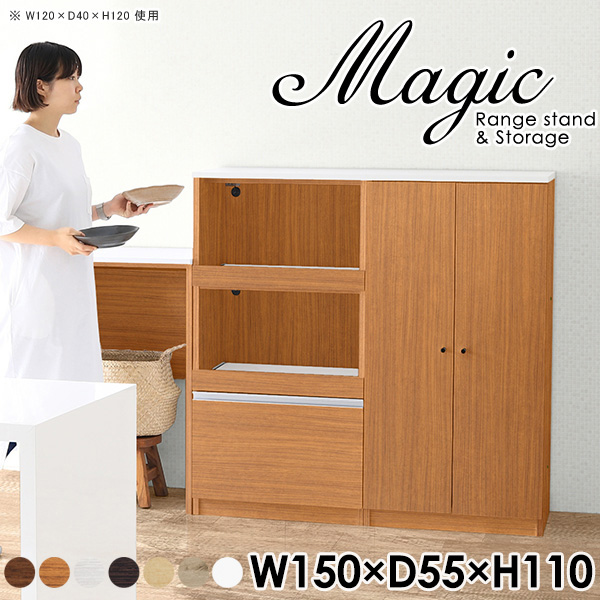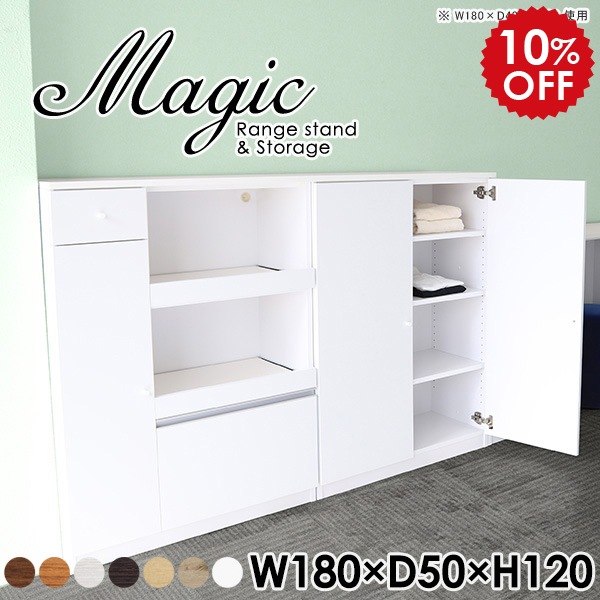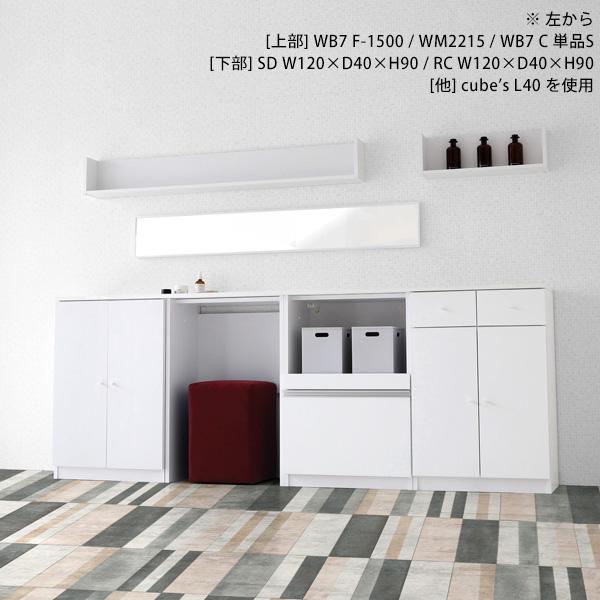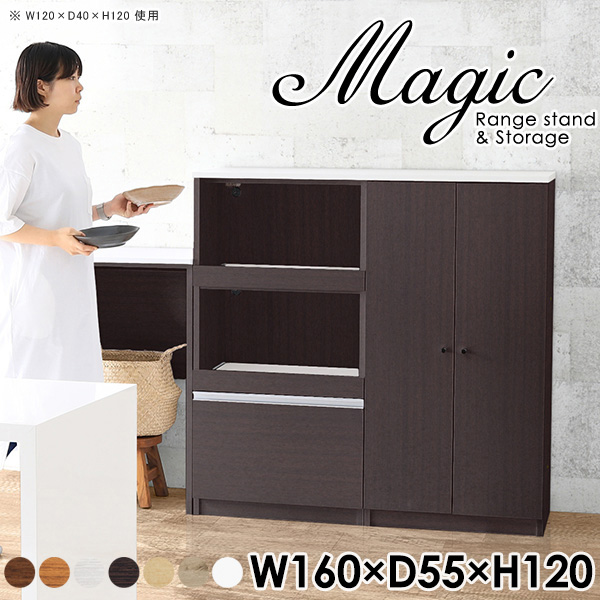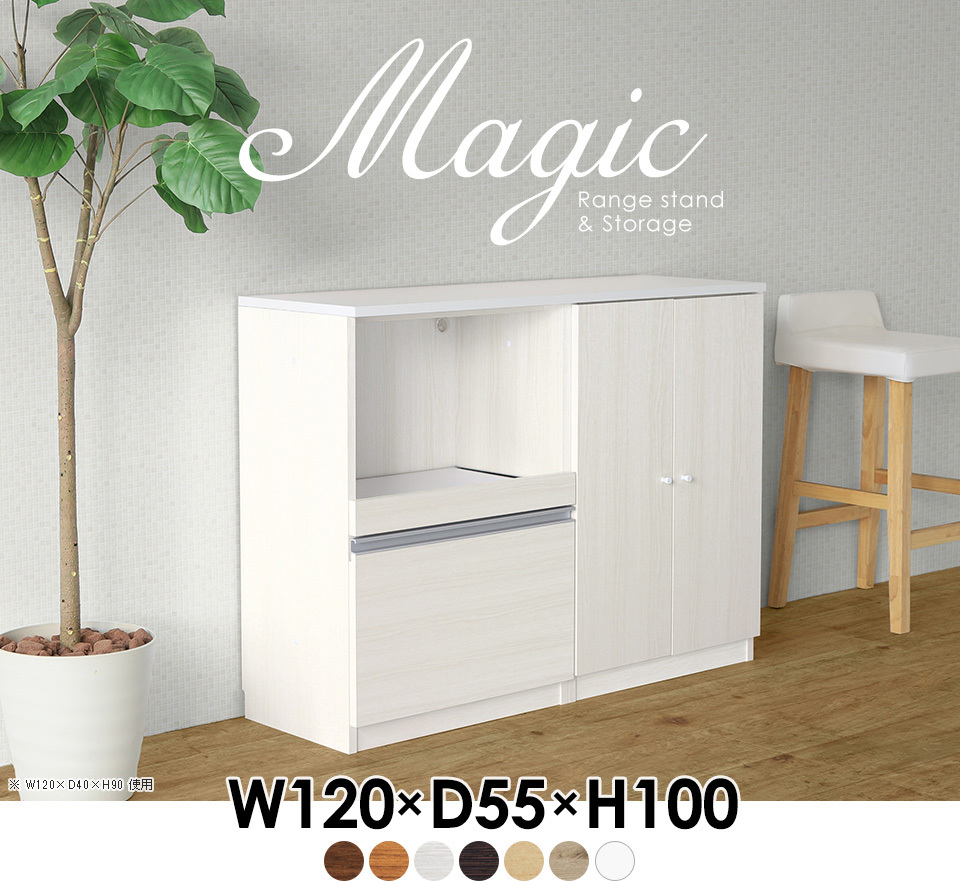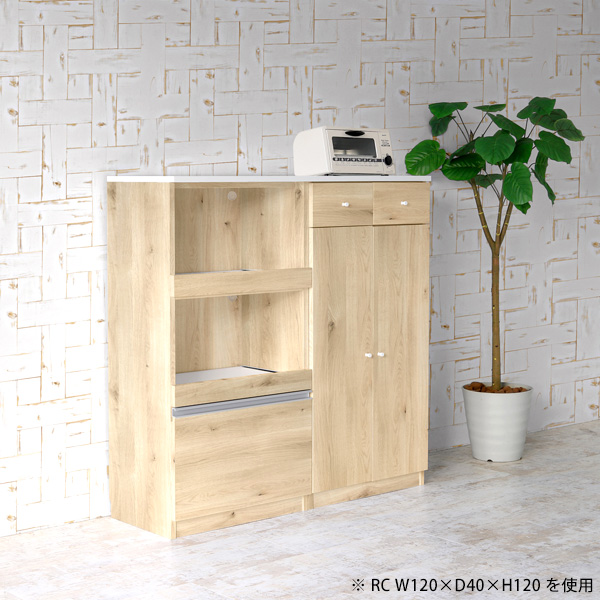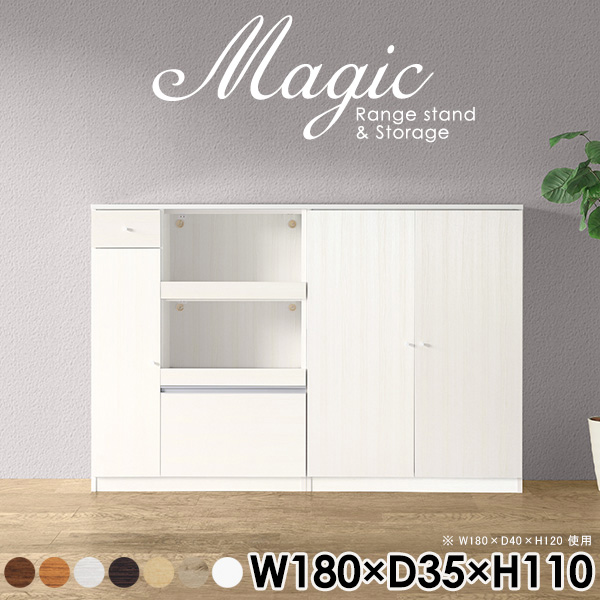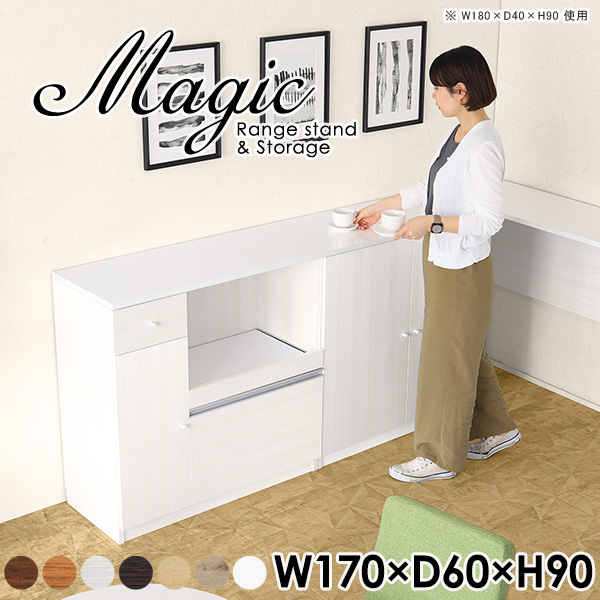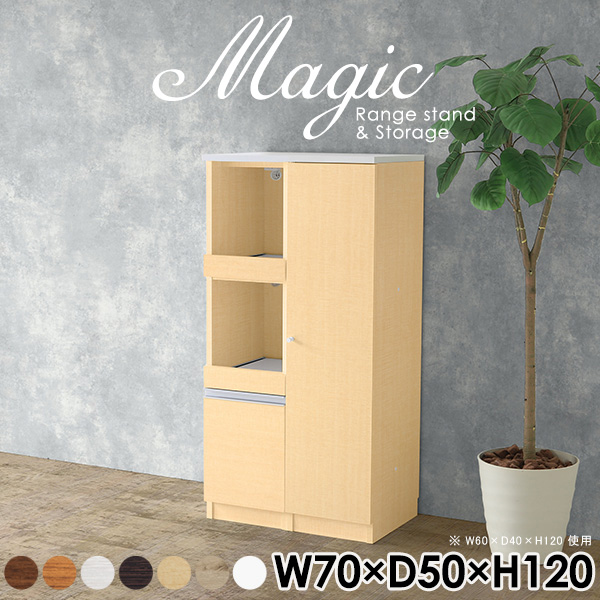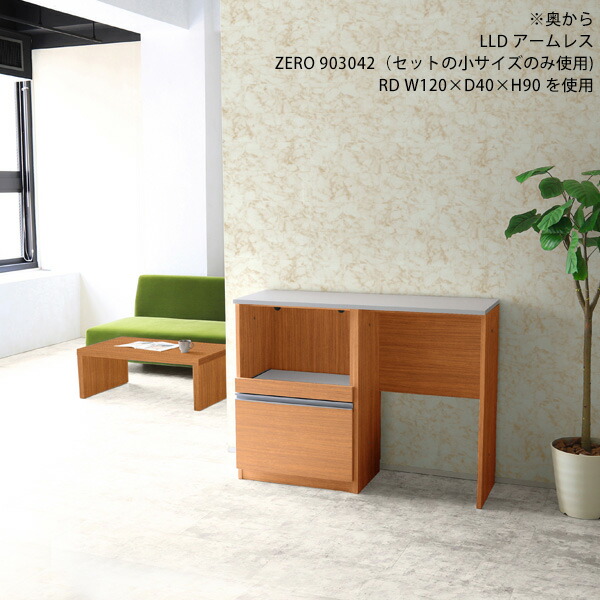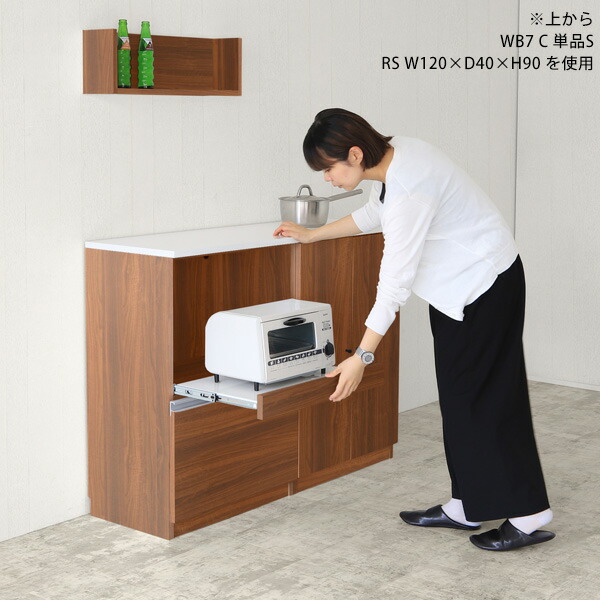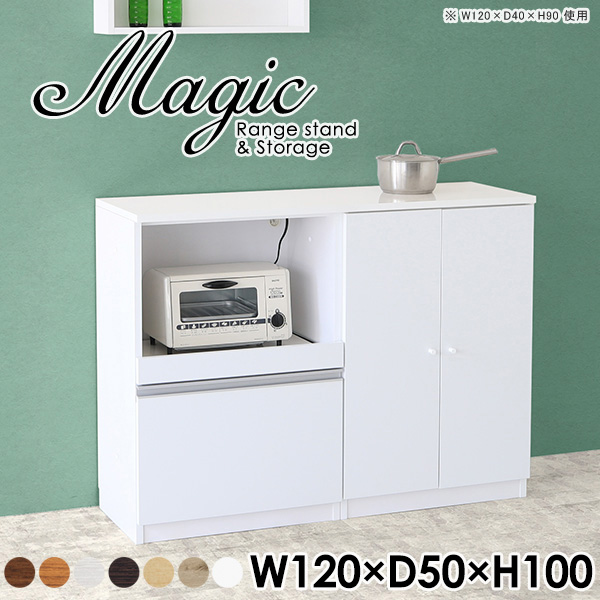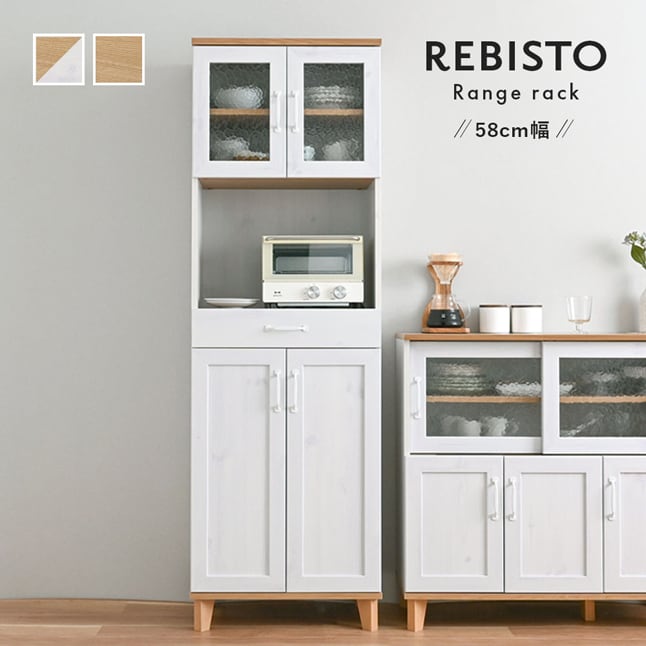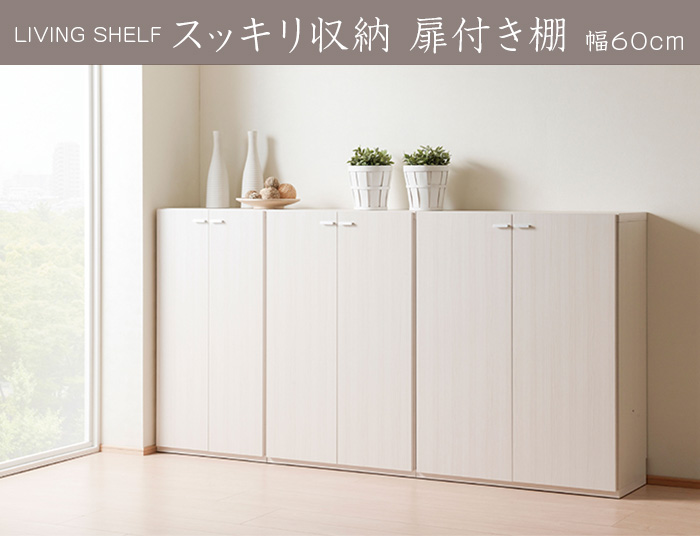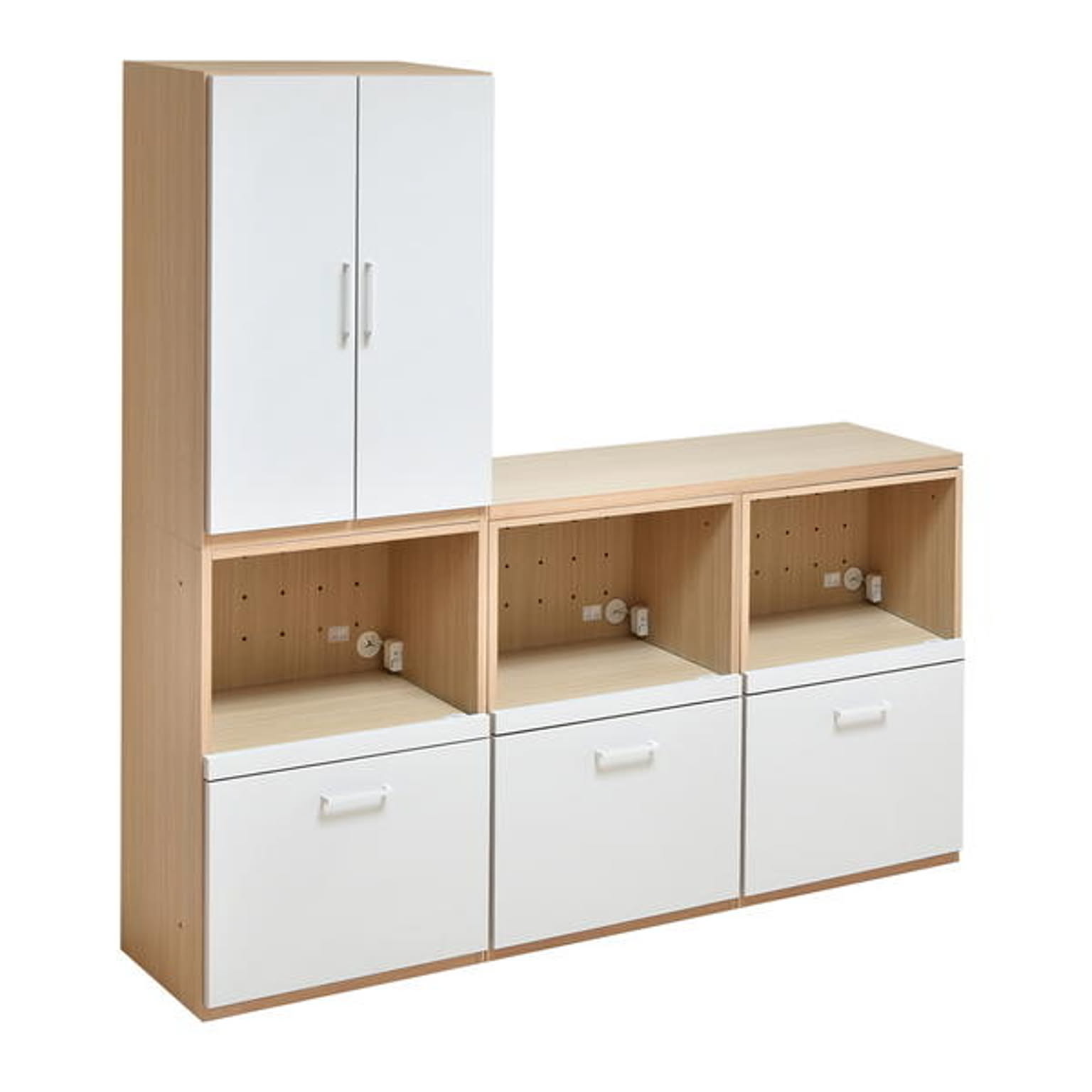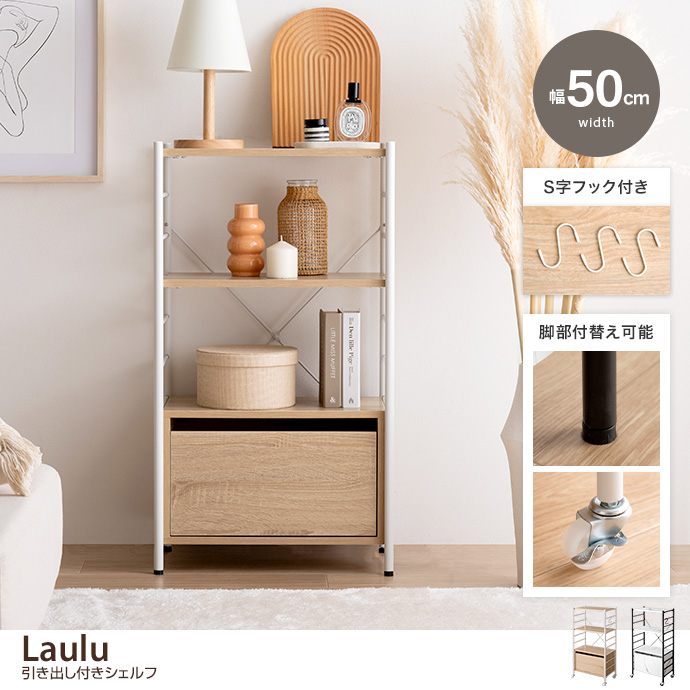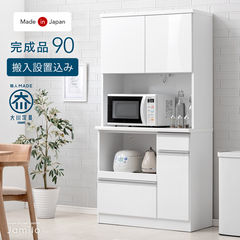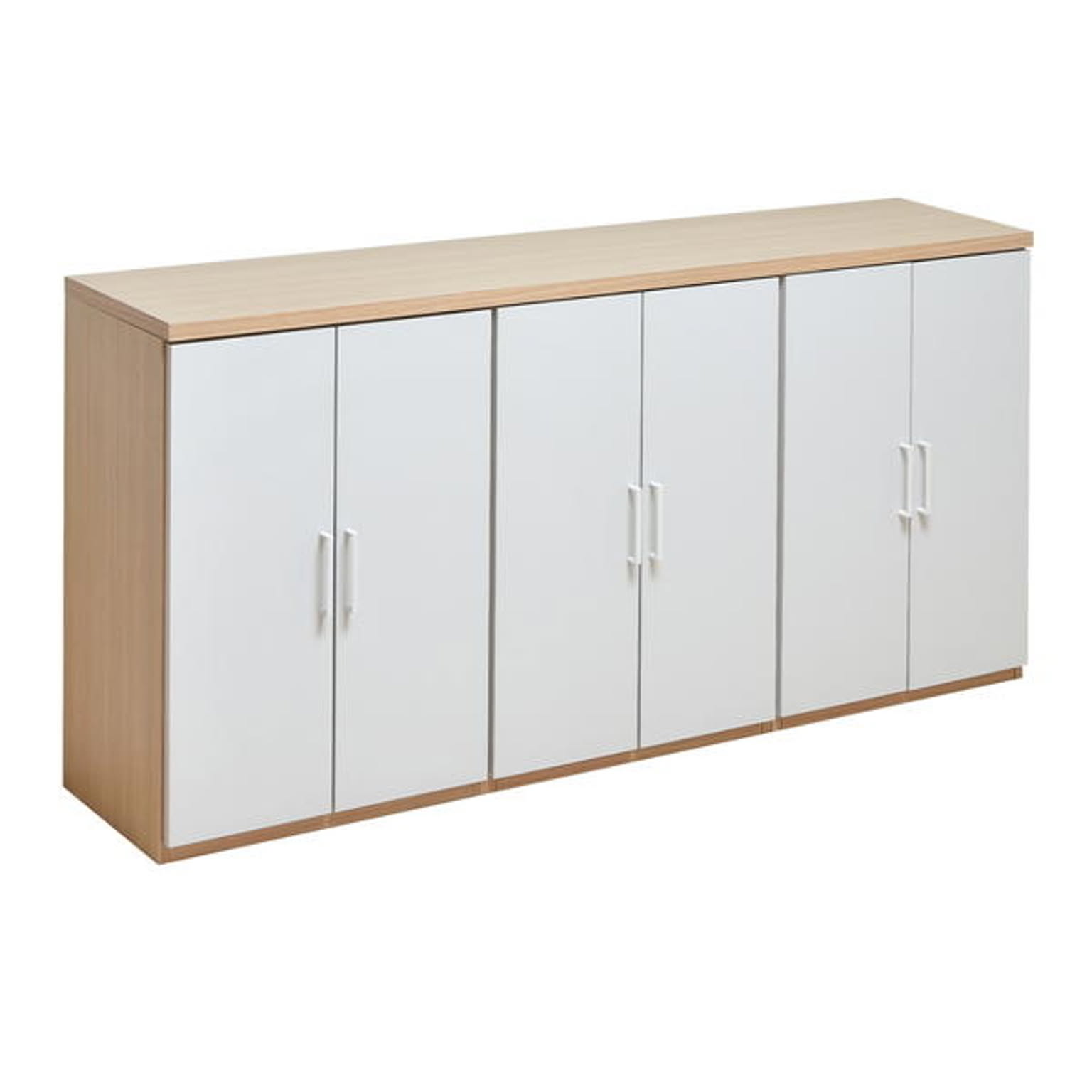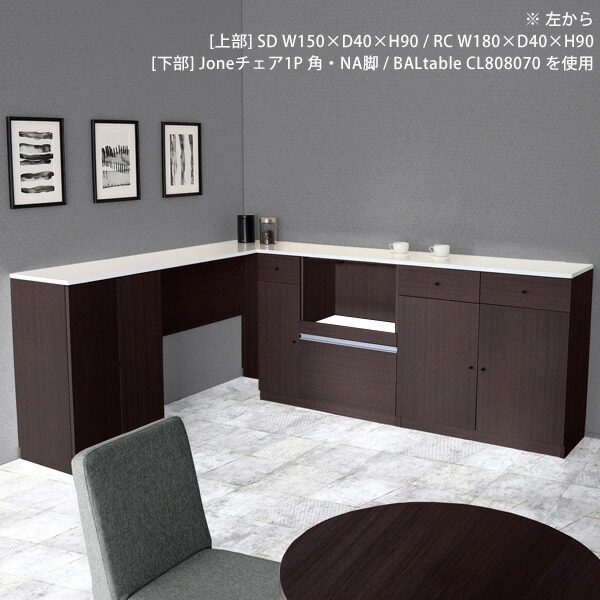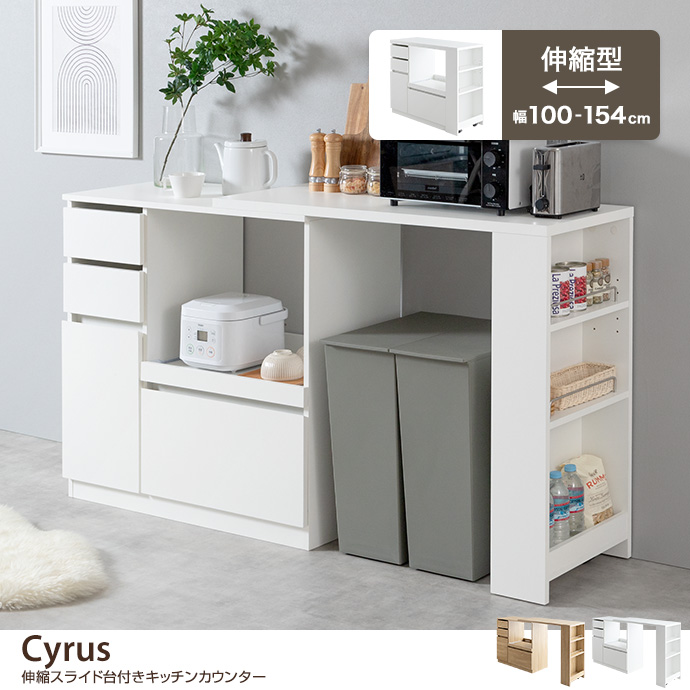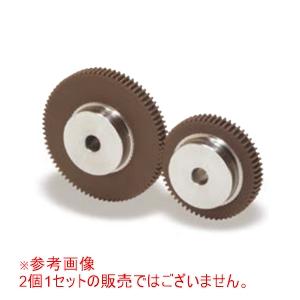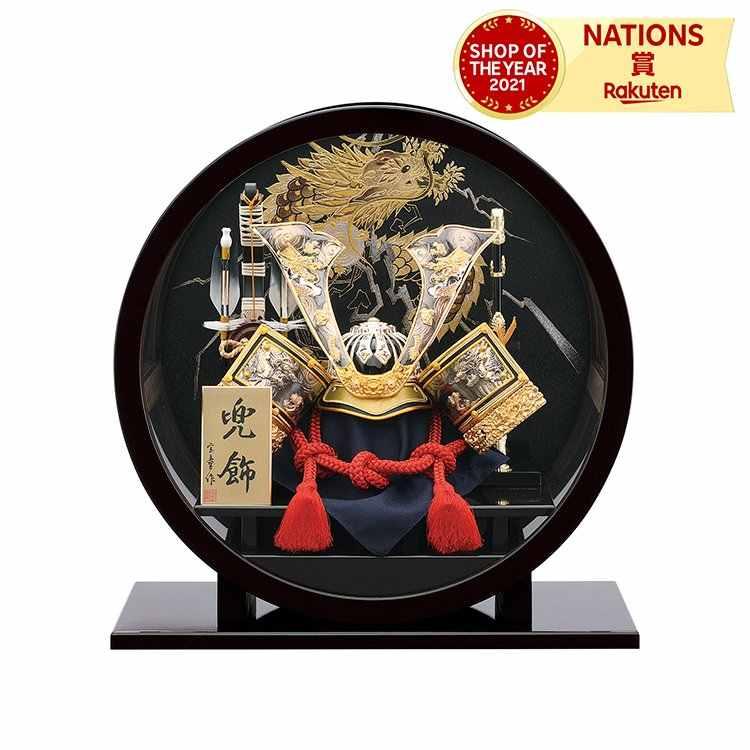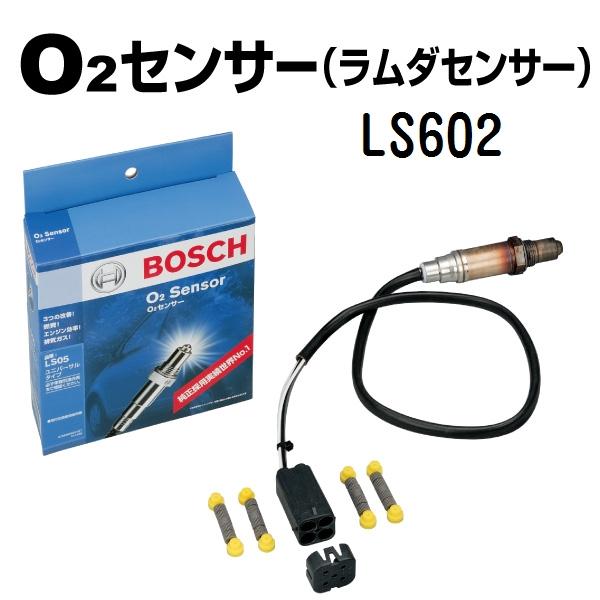ラック おしゃれ 収納棚 扉付き 扉付き棚 シェルフ ホワイト 白 コンセント付 日本製 レンジボード 食器棚 キッチン収納
(税込) 送料込み
商品の説明
商品情報
サイズ:約幅1700 奥行き500 高さ1100 mm
83200円ラック おしゃれ 収納棚 扉付き 扉付き棚 シェルフ ホワイト 白 コンセント付 日本製 レンジボード 食器棚 キッチン収納家具、インテリアテレビ台、キャビネットキャビネット ホワイト 白 おしゃれ 収納棚 扉付き シェルフ 扉付き棚 スライドテーブル コード穴 コンセント付 レンジ台 食器棚 レンジボード ハイカウンター リビングボード 電子レンジ台 キッチンカウンター 日本製 レンジラック 【幅160 奥行55 高さ120cm magicRS 木目】 |
材質:
[天板・スライド棚]メラミン樹脂化粧合板
[前板]
ブラウン・ダークブラウン・チーク/デルナチュレ化粧合板
ホワイト/ポリエステル化粧合板
ナチュラル・ホワイトウッド・オーク/強化紙
[側板・内部]プリント化粧合板
カラー:7色
ブランド:arne
日本製/天板・各ユニット分割式でお客様連結作業あり
連結金具付属
耐荷重:天板50kg/スライド棚15kg/棚板5kg
可動棚板:キャビネット用4枚、レンジ台左側収納用3枚
棚板厚み:20 mm
背面化粧仕上げ(一部タッカー留め)
コンセント1口付(合計1500Wまで)2箇所
納期:最新の納期情報はカラー選択時にご確認下さい
※キャンセル・変更はお届け前でも生産手配が済んでいるためキャンセル料(商品代金の50%)を頂戴します
送料無料
※北海道・沖縄・離島は送料別途お見積もり
【ご注意】
離島・郡部など一部配送不可地域あり
配送不可地域の場合は通常の配送便での玄関渡し
建物によっては別途追加料金を頂戴する場合あり
吊上作業などが必要な場合も追加料金はお客様ご負担
サイズの確認不十分などの理由による返品・返金不可
搬入経路のサイズ等充分にご確認願います扉付き棚 収納棚 扉付き おしゃれ シェルフ ホワイト 白 キャビネット 日本製 コード穴 スライドテーブル コンセント付 電子レンジ台 食器棚 キッチンカウンター ダイニングボード リビングボード レンジボード レンジラック 【幅150 奥行55 高さ110cm magicRS 木目】 |
ラック おしゃれ 扉付き棚 リビング収納 キャビネット 本棚 収納棚 扉付き ホワイト シェルフ 日本製 スライドテーブル コンセント付 賃貸 書庫 オフィス家具 書類棚 本収納 書類 棚 オフィス パントリー キッチンカウンター 【幅70 奥行55 高さ80cm magicRS 木目】 |
ラック おしゃれ 収納棚 扉付き キャビネット 扉付き棚 シェルフ ホワイト 白 コンセント付 コード穴 スライドテーブル 書庫 台 賃貸 オフィス収納 本収納 オフィス家具 書類棚 書類 棚 オフィス レンジラック 電子レンジ台 【幅180 奥行50cm 高さ120cm magicRS 木目】 |
収納棚 扉付き シェルフ ホワイト 白 おしゃれ 扉付き棚 スライドテーブル コンセント付 日本製 コード穴 レンジ台 食器棚 台 キッチン収納 炊飯器 レンジラック 電子レンジ台 キッチンカウンター 棚 リビングボード 本 収納 【幅130 奥行55 高さ110cm magicRS 木目】 |
キャビネット ホワイト 白 おしゃれ 収納棚 扉付き シェルフ 扉付き棚 スライドテーブル コード穴 コンセント付 レンジ台 食器棚 レンジボード ハイカウンター リビングボード 電子レンジ台 キッチンカウンター 日本製 レンジラック 【幅160 奥行55 高さ120cm magicRS 木目】 |
キャビネット ホワイト 白 おしゃれ 収納棚 扉付き シェルフ 扉付き棚 スライドテーブル コード穴 コンセント付 レンジ台 食器棚 レンジボード ハイカウンター リビングボード 電子レンジ台 キッチンカウンター 日本製 レンジラック 【幅160 奥行55 高さ120cm magicRS 木目】 |
書類収納 オフィス収納 書庫 収納棚 扉付き キャビネット ホワイト 白 シェルフ 扉付き棚 ラック おしゃれ コンセント付
扉付き棚 シェルフ ホワイト 白 収納棚 扉付き キャビネット おしゃれ
キャビネット ホワイト 白 おしゃれ 収納棚 扉付き シェルフ 扉付き棚 スライドテーブル コード穴 コンセント付 レンジ台 食器棚 レンジボード ハイカウンター リビングボード 電子レンジ台 キッチンカウンター 日本製 レンジラック 【幅160 奥行55 高さ120cm magicRS 木目】 |
レンジボード レンジ台 食器棚 キッチン収納 パントリー 収納 ペット
オフィス家具 本収納 書庫 キャビネット ホワイト 白 キッチンボード 180cm幅 おしゃれ シェルフ 日本製 薄型 間仕切り コンセント付 コード穴 収納棚 本棚 扉付き 書類収納 食器棚 レンジボード リビング テレワーク 収納 在宅勤務 カフェ 【幅180奥行35高さ110cm】 |
棚 白 扉付きの人気商品・通販・価格比較 - 価格.com
収納棚 扉付き キャビネット ホワイト 白 扉付き棚 ラック おしゃれ
電子レンジ台 レンジボード キッチン収納 食器棚 キッチンカウンター シェルフ パントリー 収納 ホワイト 収納棚 扉付き 扉付き棚 キッチンボード おしゃれ キャビネット コンセント付 日本製 コード穴 完成品 ハイカウンター ダイニングボード 【幅170奥行60高さ90cm】 |
棚 白 扉付きの人気商品・通販・価格比較 - 価格.com
ラック おしゃれ 収納棚 扉付き キャビネット 扉付き棚 シェルフ
キャビネット ホワイト 白 おしゃれ シェルフ 扉付き棚 収納棚 扉付き
棚 白 扉付きの人気商品・通販・価格比較 - 価格.com
キャビネット ホワイト 白 おしゃれ シェルフ 扉付き棚 収納棚 扉付き
≪人気≫下駄箱 スリム 木製 シューズボックス 扉付き 玄関収納 収納棚
食器棚 キッチンボード 木目 レンジボード レンジラック キッチンカウンター ラック おしゃれ 収納棚 扉付き キャビネット ホワイト 白 完成品 コンセント付 スライドテーブル キッチン 収納 キッチン収納 作業台 日本製 ハイカウンター カフェ 【幅120奥行50高さ100cm】 |
Amazon.co.jp: Bestier キッチンラック レンジ台 棚 レンジボード
食器棚 キッチンボード ホワイト ブラック 幅161 奥行56 高さ200 完成
食器棚 58cm キッチン収納 おしゃれ 収納 スリム レンジ台
≪人気≫本棚 扉付き A4ファイル 書類収納 シェルフ 白 リビング収納
ラック おしゃれ 収納棚 扉付き キャビネット 扉付き棚 シェルフ
スッキリ収納 扉付き棚 シンプル 壁面収納 日本製 送料無料 壁面収納
棚 白 扉付きの人気商品・通販・価格比較 - 価格.com
ダブルスライド棚 キッチン家電 収納棚 幅60 ホワイト レンジ台
収納扉棚 ホワイト-
食器棚 コンセント ラック キッチンボード おしゃれ 収納棚 扉付き 扉付き棚 シェルフ ホワイト 白 日本製 完成品 コード穴 レンジボード キッチン収納 キッチンカウンター レンジラック 電子レンジ台 リビングボード レンジ台 ワンルーム 【幅170奥行50高さ110cm】 |
LifeStyleFunFun 国産 完成品 ユニットシェルフ キッチン収納 2段 120
キッチンボード おしゃれの通販 | 家具・インテリア通販は家具350【公式】
レンジ台 60幅 レンジボード 大型レンジ 食器棚 食器棚 ロータイプ
≪優れもの≫本棚 扉付き A4ファイル 扉付き収納 収納棚 扉付きラック
dショッピング | 『キッチン収納・食品棚』で絞り込んだ通販できる商品
LifeStyleFunFun 国産 完成品 キッチン収納 食器棚 キャビネット 白
キャビネット ホワイト 白 おしゃれ シェルフ 扉付き棚 収納棚 扉付き
キッチンカウンター ホワイトの通販 | 家具・インテリア通販は家具350
先着3000円OFFクーポン☆Bestier レンジ台 幅86cm キッチンラック
商品の情報
メルカリ安心への取り組み
お金は事務局に支払われ、評価後に振り込まれます
出品者
スピード発送
この出品者は平均24時間以内に発送しています
